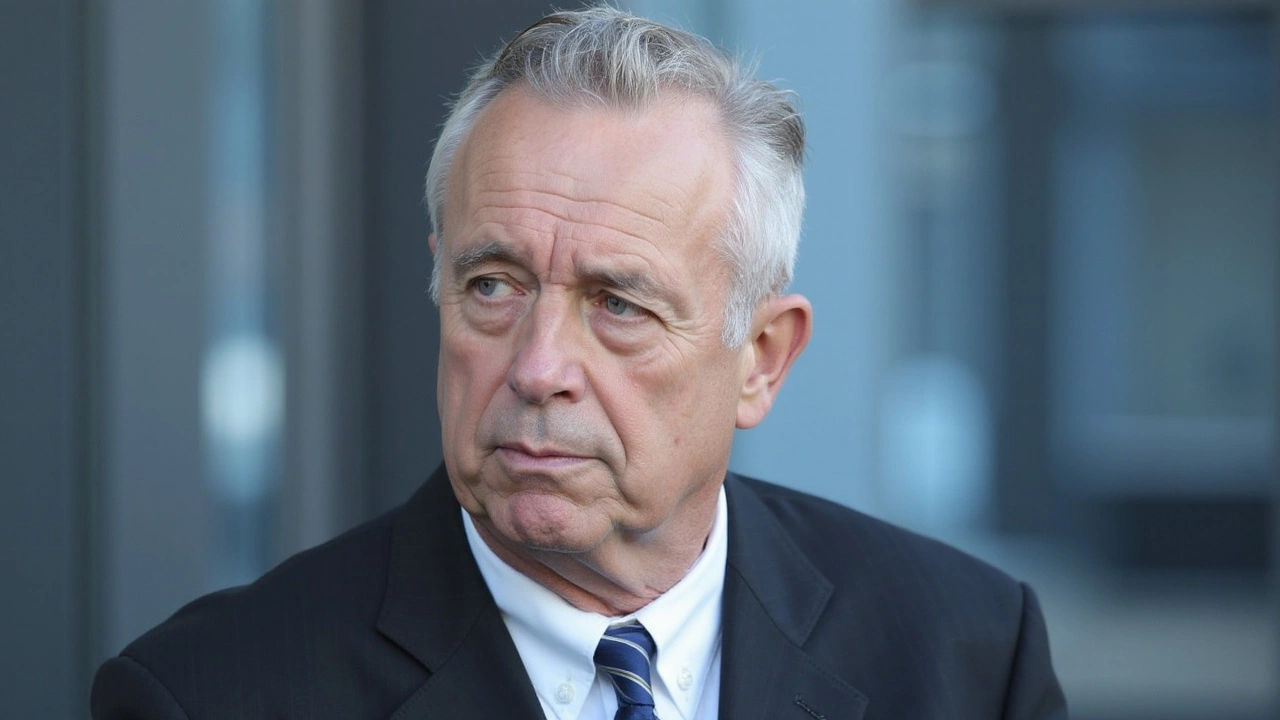Robert F. Kennedy Jr.'s Enduring Presence on Illinois Ballot for 2024 Election

The Ongoing Puzzle of Robert F. Kennedy Jr. on the Illinois Ballot
In a landscape where political decisiveness is often intangible, the presence of Robert F. Kennedy Jr. on the Illinois ballot for the 2024 presidential election embodies a confounding narrative. Initially a Democratic contender, Kennedy Jr. took an unexpected route by ultimately pursuing an Independent campaign—a decision that factored significantly into the puzzle. Thereafter, he unexpectedly endorsed former President Donald Trump, a move that stirred the waters of political speculation even further.
The state of Illinois, relatively insulated from the hyper-competitive atmosphere plaguing numerous battleground states, maintains his name on its ballot, raising questions and garnering attention from political analysts and the public alike. Despite having suspended his campaign, his enduring presence on the ballot here continues to spark lively discourse regarding both electoral strategy and the potential impact on voting patterns.
Ballot Certification and Strategic Decisions
The Illinois Board of Elections finalized the state's presidential ballot in the latter part of August, integrating Kennedy Jr. into the fold beside prominent figures such as Donald Trump and Vice President Kamala Harris. While this inclusion might come as a surprise to some, it reflects a broader strategy employed by Kennedy Jr. to withdraw his candidacy in potentially competitive states to avoid drawing votes away from Trump's support base. This calculated political chess move has engendered a kaleidoscope of opinions, with proponents and critics alike weighing in on the implications of his decision.
However, in states like Illinois, deemed less competitive on the national electoral stage, Kennedy Jr. opted not to contest his placement. In this light, some perceive his continued ballot presence as a pragmatic approach, potentially keeping a foot in the door for future political endeavors or simply a strategic act of goodwill toward Trump's campaign.
A Historical Perspective on Third-Party Candidates
The saga of Robert F. Kennedy Jr. staying on the Illinois ballot is not entirely unique if explored through the lens of past political dynamics. Adhering to election norms, the state does not usher candidates off the ballot unilaterally. Due to prior certification proceedings, Kennedy Jr.'s earlier petitioning and subsequent compliance with procedural requirements legally entrench him in the electoral race.
Other third-party aspirants such as Libertarian Chase Oliver and Green Party’s Jill Stein were notably excluded from the ballot. These exclusions rested on the insufficiency of requisite signatures—a common hurdle for third-party candidates seeking ballot access, and a stark contrast to Kennedy Jr.'s path.
The Role of Signature Thresholds in Politics
The signature threshold remains a contentious issue in American politics, often criticized for posing monumental challenges to political newcomers. This procedural hoop places incumbents and established candidates at an advantage, symbolizing a barrier that hitherto removed hopefuls like Oliver and Stein struggle to surmount. Kennedy Jr.’s successful maneuvering of this threshold serves as a testament to both his political acumen and his exploratory groundwork laid earlier in the campaign cycle.
Counting the Votes for a Suspended Campaign
Despite the apparent incongruence of retaining a name on the ballot post-campaign suspension, any votes cast in favor of Kennedy Jr. in Illinois will indeed contribute to the tapestry of the state's official election results. This fact introduces a peculiar dynamic to the official tally and intricately interweaves with the broader narrative of third-party influences within American electoral politics. Observers foresee such votes equating, in essence, to protest votes or expressions of voter discontent, directed toward traditional party offerings.
Perceived Impact and Future Considerations
The shadow cast by Kennedy Jr.'s presence underscores widening skepticism toward conventional political orthodoxy. While exact future implications remain speculative, the enduring presence of Kennedy Jr.'s name has stimulated discussions surrounding independent candidate viability and electoral reform.
With Kennedy Jr. still slated to appear on ballots in 31 states, the 2024 election cycle promises continuing intrigue. Political analysts observe in earnest, contemplating how his residual presence might sway metrics or influence state-by-state dynamics. As anticipation mounts, his enduring candidacy serves as a reminder of how one individual's political decisions can ripple through the landscape, influencing both party strategies and resulting voter sentiments.